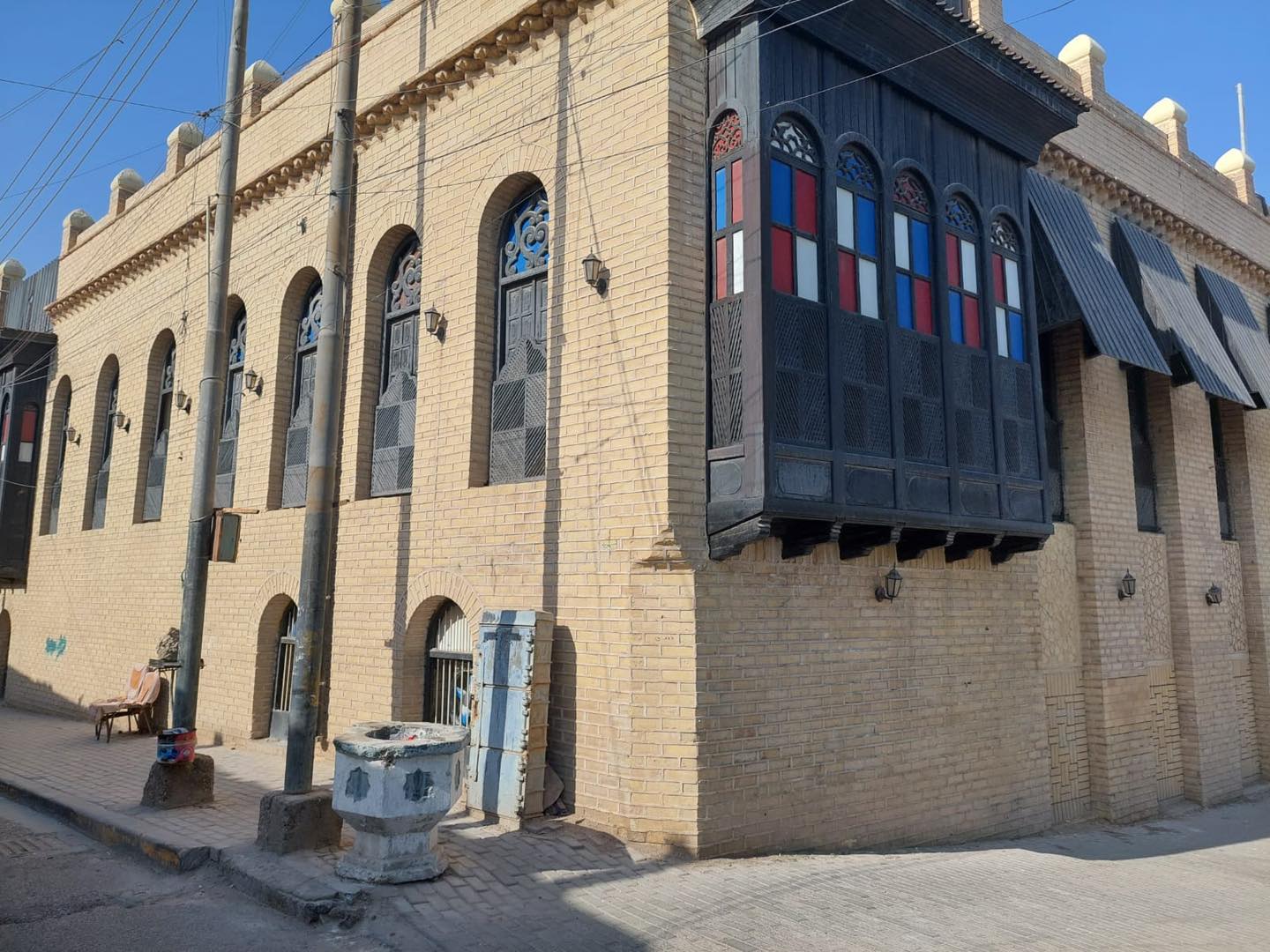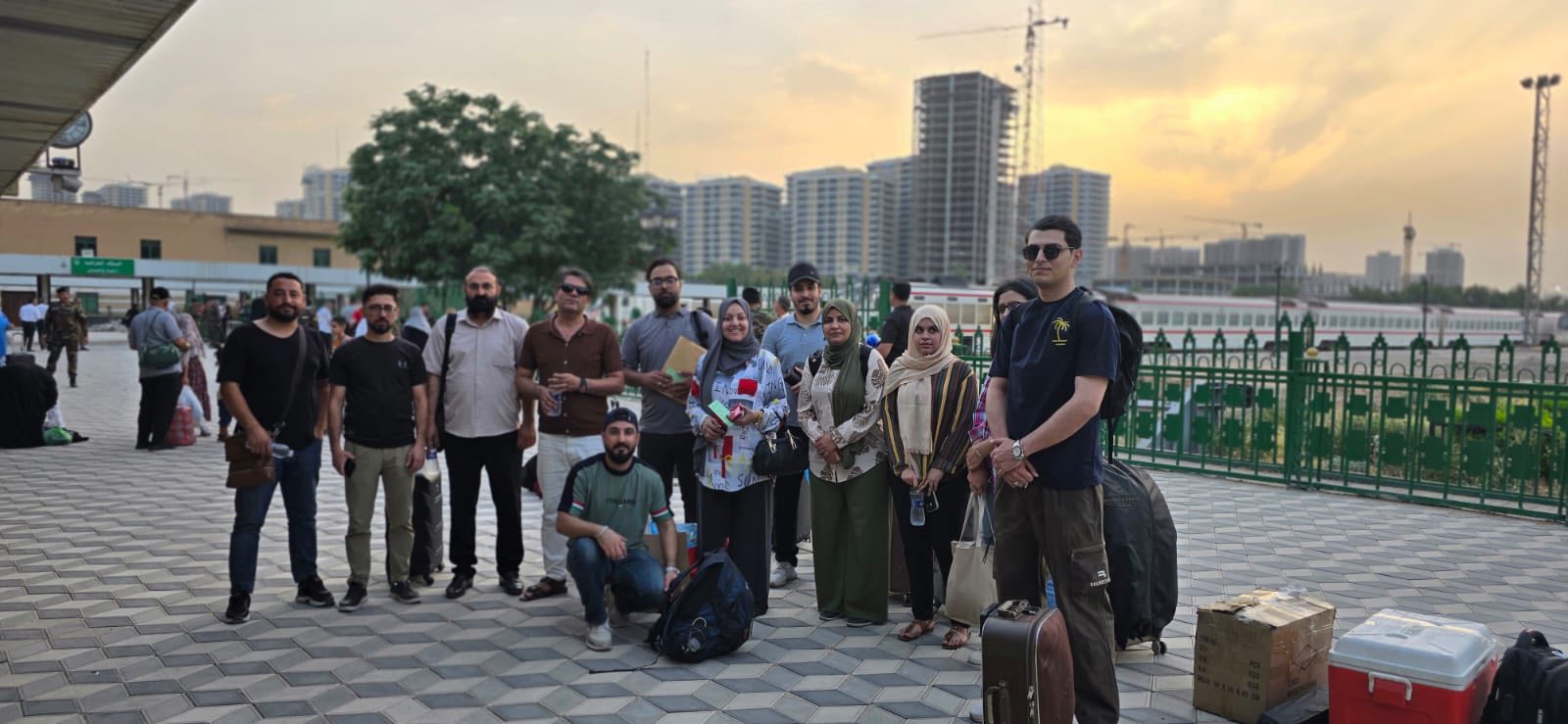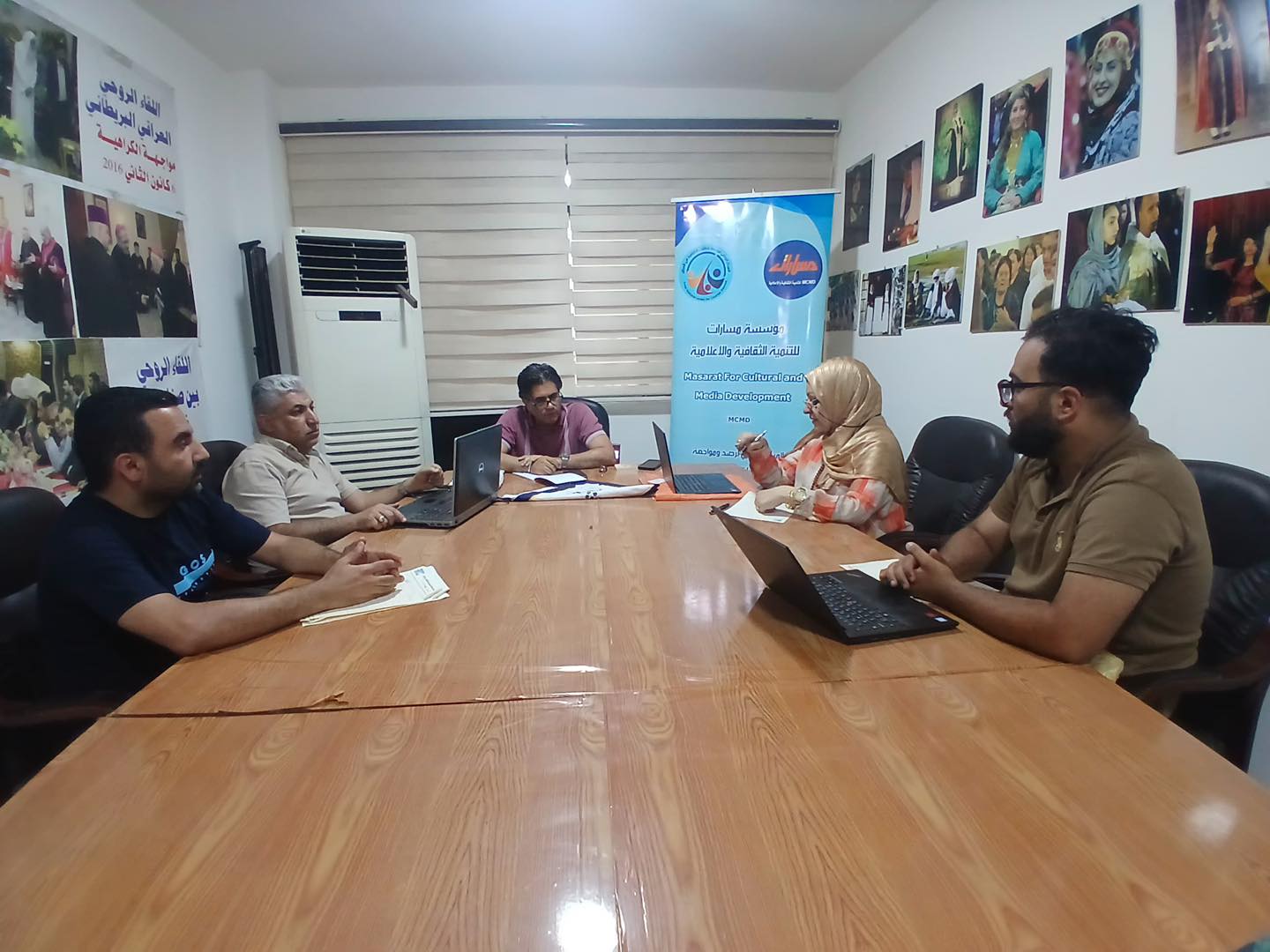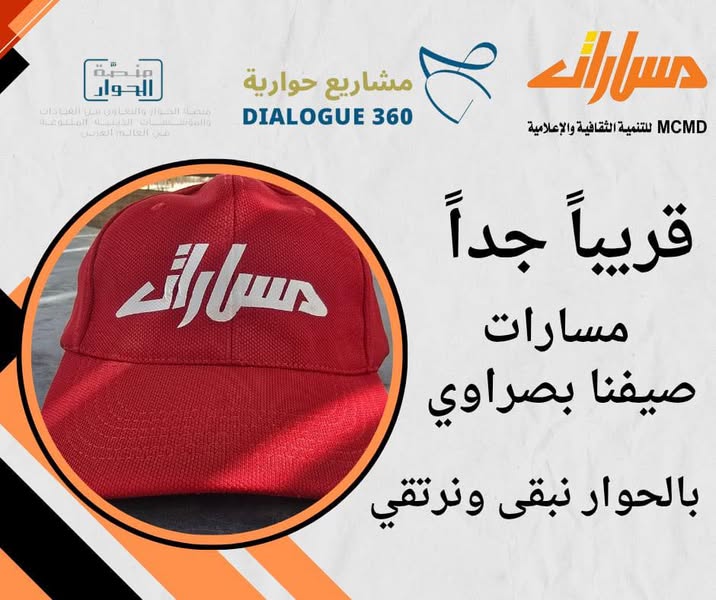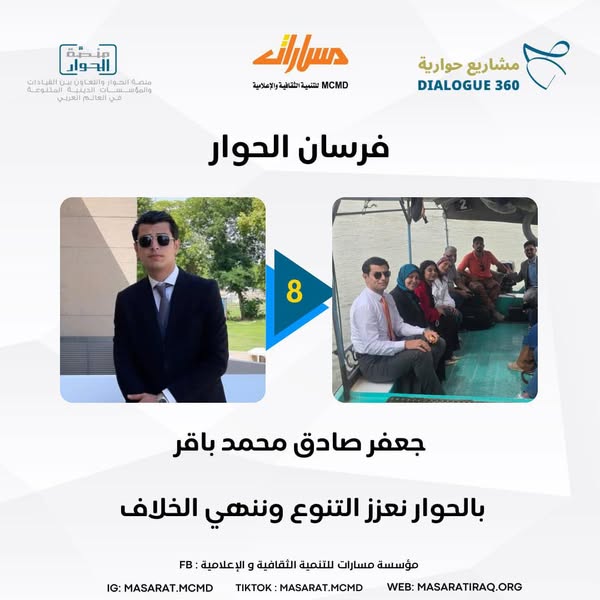The participants, who arrived from the cities of Sinjar and Baghdad, were joined by a number of activists from Basra. They began their camp hosted by theater director and visual artist Mohammed Al-Amara, who provided a clear and comprehensive vision of the city’s history, its symbols, and the relationships among its components, as well as the foundations of dialogue based on accepting the other in a city that is a gathering center for people of African descent.
The camp hosted Dr. Thawra Youssef, one of the most prominent figures in Basra and an expert in the rituals of Afro-Iraqis. She provided the campers with a detailed explanation of the journey of people of African descent in Basra in general and Al-Zubair in particular, starting from their arrival throughout history to their settlement there up to the present day. She addressed their origins, cultures, customs, traditions, and their connection to art, especially singing and music.
Participants discussed with academic expert Dr. Thawra the extent of the impact of people of African descent on Basra’s culture and how this art has become a primary identity for Basra.
In-depth discussions also took place about confronting the hate speech faced by people of African descent, the reasons behind it, the mechanisms to combat it, and what communities need to overcome the complex of superiority over others based on color, language, or religion.
At the end of the meeting, the participants from Sinjar presented Dr. Thawra Youssef with a stone from Mount Sinjar as a memento of this meeting and as an expression of their pride in this mountain, which symbolizes the resilience of the Yazidis and their attachment to the land, country, and identity.
The campers from Baghdad also presented a woven piece crafted by women from the citizenship education camp representing Baghdad’s ethnic components, symbolizing the power of diversity when united to create beauty.

